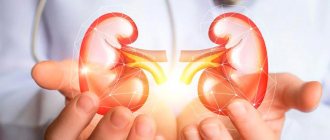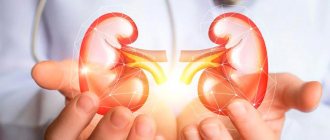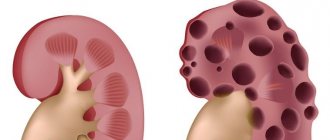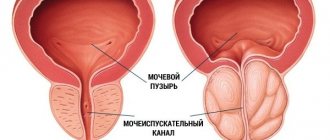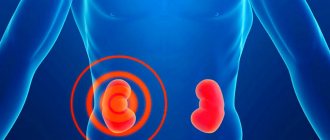Urethritis - inflammation of the urethra (urethra) is common in men. Almost any infection that penetrates the genitourinary system first enters the urethra and then spreads to the internal male genital organs, prostate, seminal vesicles, testicles, bladder and kidneys.
Moreover, the causative agent of urethritis can be both sexually transmitted infections and opportunistic bacteria, which are normally present in small quantities in the human body.
On our website we will tell you in detail what urethritis in men is like, its symptoms and treatment. Let us describe the difference between treating inflammation of the urethra at home and in the clinic.
Causes of the disease
The cause of the development of symptoms of bacterial urethritis in men and women is pathogenic flora. The main causative agents of the disease:
- streptococci, staphylococci;
- Escherichia coli and Pseudomonas aeruginosa;
- pseudomonas;
- candida;
- chlamydia and trichomonas;
- gonococci.
Pathogenic microorganisms do not show activity if there is no provoking factor. Under certain conditions, they begin to multiply rapidly, causing inflammation of the organ.
Urethritis causes and first signs in men
The cause of urethritis is most often various microorganisms: bacteria, fungi, viruses, protozoa, which penetrate the mucous membrane of the urethra, destroy it, causing inflammation.
If we talk about sexually transmitted diseases, everything is extremely clear and understandable, but for nonspecific urethritis caused by infections not related to STDs, it is not enough just for microorganisms to enter the canal. Predisposing factors play a role in creating favorable conditions for the propagation of the pathogen.
Factors contributing to the development of urethritis
The causes of bacterial urethritis in women and men are the following conditions:
- unprotected sexual contacts;
- pelvic organ injuries;
- surgical interventions;
- urethral catheterization and other medical procedures.
Factors provoking the disease:
- hypothermia;
- decreased protective functions of the immune system;
- abnormal structure of the organs of the genitourinary system - close location of the canal in relation to the rectum;
- concomitant chronic pathologies of gynecological and urological nature;
- lack of personal hygiene.
All infectious urethritis are divided into groups and classified according to the nature of their course.
Physiotherapeutic treatment
Physiotherapy is a fairly effective and popular method of treatment, which uses physical factors such as a magnetic field, currents, ultrasound, laser, ultraviolet and infrared radiation, etc. Diathermy, hot baths, electrophoresis of antibiotics also have a significant anti-inflammatory and analgesic effect.
Laser therapy
Laser therapy is one of the most popular methods of light therapy. When the body is exposed to laser radiation of 10 mW, blood microcirculation processes are activated, thereby improving tissue trophism. During the session, non-invasive irradiation of the outer part of the urethra is performed: in men, the back surface of the penis is irradiated, and in women, the external opening of the urethra is irradiated. To obtain the desired effect, you must complete a course consisting of 5-6 procedures.
Thermotherapy
Thermotherapy is a method of physiotherapeutic effects on organs using high temperatures. The temperature is constantly at a level of at least 45°C. To achieve this temperature, various types of energy are used. For example, with microwave thermotherapy, the temperature instantly rises to 100° C. The time of the thermotherapy session is determined individually. On average it is about 5-30 minutes. One course of treatment requires 8-10 sessions.
Types of disease
Bacterial urethritis is usually divided into two types:
- The first one is nonspecific. Its development is associated with the activity of pathogens: Proteus, Escherichia coli, streptococci, staphylococci, Candida fungi.
- The second is specific, associated with the development of sexually transmitted diseases. That is, the cause is pathogens: gonococci, trichomonas, chlamydia, ureaplasma, and so on.
Also, bacterial urethritis in men and women is of two types:
- In the primary type, the infection immediately penetrates directly into the urethral canal. As a rule, this situation happens during unprotected sexual contacts.
- The secondary type is associated with the penetration of infection from the area of inflammation in other organs: prostate, bladder, and so on.
The primary type also has a division according to the nature of its course - acute and chronic form.
Causes of urethritis in men
- Sexually transmitted infections: gonorrhea, trichomoniasis, herpes, chlamydia, mycoplasmosis, ureaplasmosis, gardnerellosis, candidiasis. These pathogens can cause inflammation of the urethra of varying severity, from an acute purulent process, as with gonococcal infection, to sluggish, inconspicuous urethritis with mycoplasma or ureaplasma.
- Opportunistic bacteria - that is, those that live normally in the body and exhibit their pathogenic properties when local or general immunity decreases, during injuries, hypothermia, irradiation, and dysbacteriosis. These include streptococci, staphylococci, Proteus, Klebsiella, and very often E. coli and enterococcus, which live in the intestines. These bacteria can enter the urethra both from the skin of the glans penis and during sexual contact if the microflora in the woman’s vagina is disturbed and there is a predominance of these microbes or fungi such as Candida. We also often see urethritis caused by intestinal bacteria after anal sex and streptococcal inflammation after oral contact.
- There are urethritis due to urolithiasis, when the mucous membrane of the urethra is injured by sand and stones. In this case, not only the injury itself occurs, but also the addition of bacterial flora, which further supports the inflammatory process.
- Injuries to the urethra during medical procedures (urethroscopy and cystoscopy), during very active sex.
- Thermal and chemical burns of the urethra (including vaginal contraceptive suppositories).
- Drug-induced urethritis occurs during treatment with drugs that, when excreted in the urine, have an irritating or damaging effect on the mucous membrane of the canal (chemotherapy for tumors and a number of other drugs).
- Allergic reactions can also affect the urethra. This is how allergic urethritis develops.
When making a diagnosis, a urologist or venereologist must take into account the possible combination of factors that caused urethritis so that therapy is effective, and not simply prescribe an antibiotic for any type of this disease.
It is important for a man to understand the first signs of urethritis and the main symptoms of this disease in order to consult a doctor in time, without waiting for the disease to become chronic or cause prostatitis.
Diagnostics
At the first manifestation of symptoms of bacterial urethritis in women and men, it is important to immediately consult a doctor. After the examination, the specialist makes a diagnosis:
- laboratory analysis of blood and urine for the level of leukocytes;
- bacterial smear culture to determine the type of pathogen and select an antibiotic;
- urethroscopy – to examine the walls of the organ (for a chronic type of disease and no exacerbations);
- 2 or 3 glass sample;
- PCR - to determine the DNA of the pathogen.
If necessary, the doctor may prescribe an ultrasound and urethrography to examine the condition of the affected organ.
Diagnosis of the disease
The final diagnosis is based on complaints, medical history and life of the patient, examination of the external and internal genital organs, as well as laboratory research methods (general urine analysis and biochemical blood test). To accurately identify the causative agent of this disease, bacteriological and bacterioscopic diagnostics of smears taken from the urethra are required. The specific features of the microorganism and its sensitivity to various groups of antibacterial agents used in urological practice are determined.
Bacterial urethritis - symptoms
Signs of the disease do not appear immediately, but only on the 7th – 10th day of activity of pathogenic bacteria. General symptoms of the disease:
- pain in the lower abdomen;
- painful urination;
- discharge with a specific odor (serous or purulent);
- redness and swelling of the genitals.
The clinical picture of the disease in women and men may differ. In gynecological diseases, the severity is less pronounced. Symptoms of bacterial nonspecific urethritis in women may be absent for a long time. But since the incubation period of the disease ranges from 7 to 45 days, even if you feel normal, the pathology will continue to progress.
The first signs of urethritis
- Pain, stinging, burning, itching, discomfort in the urethra, often aggravated by urination. The severity of these symptoms varies and depends largely on the pathogen and the degree of damage to the urethra. Sometimes the manifestations are so minor that they occur only in the morning or during emptying of the bladder.
- Discharge from the urethra: purulent, mucous, cloudy, bloody, liquid, thick, abundant, scanty. In general, any discharge from the canal is no longer the norm, but a reason to consult a urologist.
- Stains on underwear.
- Clumping of urethral sponges.
- Cloudy urine with impurities.
- Redness of the urethral sponges.
A man needs to pay attention to these signs in order to understand that he is sick. With a healthy urethra, such signs cannot and do not exist.
Even if there has been no casual sexual intercourse, symptoms of urethritis caused by non-venereal microflora may appear. This is also a reason to take care of your health.
Many men do not seek help at the first signs of urethritis, hoping that it will go away on its own. And indeed, symptoms sometimes disappear or become less pronounced over time. But pathogenic bacteria at this time spread to the posterior urethra, prostate, and epididymis. And then you have to treat chronic prostatitis, vesiculitis or epididymitis, which will continue throughout life with periodic exacerbations.
There are two main types of urethritis: specific, caused by a sexually transmitted infection or Mycobacterium tuberculosis, and nonspecific urethritis, caused by opportunistic microflora.
Specific urethritis is characterized by the presence of a more or less clear incubation period, that is, the time elapsed from the moment of infection until the appearance of signs of urethritis.
With nonspecific urethritis, it is difficult to determine the incubation period, because the pathogen could remain in the body for quite a long time without causing any problems. This is where predisposing factors come first: hypothermia, trauma, decreased immunity, diabetes.
Symptoms of urethritis in men when infected with an STD depend directly on the pathogen. For example, with gonorrhea, the discharge is profuse and purulent, the pain in the canal is severe, the disease begins abruptly and acutely in the classic version. With chlamydia, the discharge will be liquid, cloudy, not abundant, and the sensation is more likely to be itching than pain or stinging.
Without treatment, the severity of symptoms gradually weakens, and the disease becomes chronic.
The signs of chronic urethritis are almost the same as those of acute urethritis, but they do not always appear, but mainly during exacerbations. Outside of the acute period, a man may be bothered by mild discomfort, tingling, itching in the penis area, mucous discharge from the urethra, slight redness and swelling of the urethral sponges.
Herpetic urethritis is characterized by periodic exacerbations, beginning acutely with pain in the canal, mucous discharge, sometimes mixed with blood. Even after quality treatment, relapses are still possible.
Diagnosis of urethritis in men is generally not very difficult. Firstly, we focus on the clinical picture, complaints, symptoms, and secondly, we conduct laboratory tests to confirm the diagnosis.
Bacterial urethritis - treatment
The treatment strategy for the disease is determined based on several factors. The symptoms, the nature of the pathology (acute or chronic), and the type of pathogen are taken into account. The conservative program includes the prescription of antibiotics in combination with silver nitrate or Collargol. The drugs are used for installations in the urethral canal. Rinsing helps in destroying pathogenic microorganisms. Used for nonspecific type of disease
Antibiotics for the treatment of bacterial urethritis in women and men are chosen to be broad-spectrum. Such drugs differ in that the pathogen cannot show resistance to them:
- group of macrolides;
- cephalosporin drugs;
- tetracycline;
- fluoroquinolones;
- group of sulfonamides.
The course of antibacterial therapy is 7–10 days. It is recommended to take a probiotic at the same time so as not to disturb the intestinal microflora.
Also based on symptoms, treatment for bacterial urethritis in women and men includes:
- NSAIDs;
- painkillers;
- vitamin complexes.
Physiotherapy will help consolidate the results of treatment and speed up the recovery of the body.
Treatment of acute urethritis
Acute urethritis can be treated well and quickly if the causative agent is identified, the drugs to which it is sensitive are determined, and the most effective treatment regimen is prescribed that can destroy the cause of the disease, remove inflammation, and not leave the preconditions for the development of chronic urethritis.
Usually, to treat this type of urethritis, an antibiotic is sufficient if it is caused by bacteria, an antimycotic if it is fungal, and an antiprotozoal drug if it is caused by protozoa. Herpetic urethritis is treated with antiviral drugs.
The choice of drug dosage, route of administration, and course duration depends on a number of factors, but usually does not exceed 10–14 days.
For STDs, the instructions define the drugs of choice and the duration of treatment. When treating nonspecific acute urethritis, the doctor focuses mainly on the effect of it and the results of intermediate analyzes of a smear from the urethra.
When treating acute urethritis, the choice is usually injectable drugs, which have better bioavailability and immediately create maximum concentrations of the antibiotic in the affected tissue. But such treatment is only possible in a clinic under the supervision of a doctor. For home regimens, alternative drugs are prescribed in tablets, which do not always have the required effectiveness. Although in some cases it is necessary to combine injections with tablets.
Depending on the pathogen identified, cephalosporins, fluoroquinolones, macrolides, tetracyclines, aminoglycosides, imidazoles and antifungal drugs may be prescribed.
How to treat acute urethritis if it is caused by both sexually transmitted and non-venereal bacteria in combination with protozoa or fungi?
This is actually not a rare situation when several pathogens of urethritis are detected at once. In this case, the selection of drugs is not easy. But for an experienced urologist-venerologist this is not an insurmountable obstacle.
First of all, we determine the presence of protozoa, which, being large cells, can contain bacteria of other microorganisms. First we start therapy against them. Metrogyl is mainly used intravenously in combination with tablet forms, if necessary. The dosage is selected by the doctor.
Next, we add an antibiotic that acts on a sexually transmitted infection, if one is detected. Ideally, the drug is also prescribed taking into account the existing sensitivity of the identified nonspecific opportunistic flora.
Such treatment has established itself as the most effective option for getting rid of acute mixed urethritis and helps to avoid its chronic form.
Nutrition
A proper diet is one of the components of a complete treatment. It includes meals containing a balanced amount of fats, carbohydrates and proteins. Products should not cause irritation to the urethra. This means that salty, spicy, smoked dishes are prohibited.
Alcohol can also trigger an exacerbation of the disease. You will have to completely stop drinking alcohol and limit smoking as much as possible.
Instilled nutrition in the treatment of pathology:
- consumption of products of natural origin;
- breakfast and lunch can be hearty, and dinner can be light;
- The norm of fluid consumption is at least 2 liters per day.
It is very important not to put stress on the kidneys, so products should not contain preservatives.
Symptoms of the disease
Acute urethritis is characterized by fairly strong symptoms. Patients complain of severe burning pain when urinating, increased urge and profuse purulent discharge, the nature of which depends on the individual characteristics of the pathogen. In men, redness and sticking of the sponges of the external opening of the urethra are noted.
If the disease takes a chronic course, then the symptoms of the disease are somewhat smoothed out. However, when exposed to certain provoking factors (ARVI, hypothermia, constant stress, alcohol consumption, poor diet), the patient again experiences symptoms of the inflammatory process.
Diet
When prescribing therapy, the doctor gives recommendations on permitted and prohibited foods. It is prohibited to eat:
- herbs, spices;
- foods high in acid;
- broths and meat decoctions;
- conservation;
- radishes, garlic, horseradish;
- strong tea and coffee-containing drinks.
Allowed and required foods include vegetables and fruits. Antimicrobial and antibacterial properties have:
- pumpkin;
- zucchini;
- celery;
- parsley and asparagus;
- honey.
These products are good for making purees and casseroles or eating raw. You can include low-fat fish, poultry, and veal in your diet. To ensure normal bowel function, you need to eat fermented milk products every day.
Possible complications
Failure to promptly treat bacterial urethritis in men and women risks serious consequences. The pathology can develop into a chronic form, which leads to frequent relapses. Among the complications of the disease:
- cicatricial deformities – urethral strictures in men;
- balanoposthitis;
- prostatitis;
- vesiculitis;
- orchiepididymitis;
- cystitis;
- reactive arthritis;
- adhesions in women;
- pyelonephritis.
Long-term pathology leads to infertility.
Causes of chronic urethritis
Long-term, sluggish inflammation of the urethra is called chronic urethritis. Treatment of this disease presents serious difficulties, because the pathological process in the urethra has long been formed, and the reasons that caused it have ceased to play a major role and the impact on them does not bring relief to the patient’s condition.
Let us identify several main causes of chronic urethritis in men in order to then justify treatment methods:
- Wrong choice of drugs in the treatment of acute urethritis, especially venereal urethritis: refusal of the drugs of choice in favor of tablets,
- failure to maintain the dose of the antibiotic, timing, skipping a drug dose,
- prescribing drugs without taking into account the sensitivity of microbes to them,
- limitation of treatment to the formal prescription of antibiotics only.
In fact, the cause of chronic urethritis is most often SELF-MEDICATION, unwillingness to listen to the doctor’s advice on diagnosing and treating the existing process. It seems to many men that all this can be treated very simply - take the pills and be healthy. Sometimes this leads to a temporary disappearance of symptoms, and the disease becomes latent. And then - chronic urethritis and prostatitis, and hello, doctor, at least once every three months.
Some people think: why take any tests other than a smear from the urethra, because that’s where the problem is. Or why donate crops for flora? I'm only interested in sexually transmitted infections! As a result, some microbes were not identified, treatment was prescribed without taking into account their presence, and we get chronic urethritis!
Prevention
Preventive measures are the best way to avoid illness. Prevention includes:
- maintaining personal hygiene;
- use of barrier methods of protection during sexual intercourse;
- active lifestyle – physical activity;
- avoiding hypothermia.
It is also very important to undergo regular scheduled examinations by a gynecologist and urologist. The specialists of the Desir clinic offer comprehensive medical care: our highly qualified doctors will conduct high-quality diagnostics and prescribe the necessary effective treatment. Our doctors are always there to protect the health of their patients. Choose the right specialist, make an appointment at a time convenient for you.
Treatment of the disease
The treatment regimen for urethritis is closely tied to its type. Bacterial urethritis most often requires complex treatment. It combines antibiotics with drugs aimed at stabilizing disturbed microflora and boosting immunity.
The treatment of gonorrheal urethritis is carried out by a specialist - a venereologist. Therapy includes:
- taking antibiotics (mainly cephalosporins);
- drinking plenty of water;
- diet: avoiding spicy, salty, fatty, fried foods and alcohol.
The prognosis for treatment is favorable.
To get rid of the signs of Trichomonas urethritis, the patient is prescribed special anti-Trichomonas drugs. The doctor selects the exact regimen based on the degree of neglect of the disease. If there is a permanent partner, drug therapy is also administered to him.
Along with drug treatment, a diet is determined based on the exclusion of fatty, spicy, fried foods and alcohol.
Chlamydial urethritis or chlamydia is more difficult to cure than its analogues, since being located inside the cells, it provides itself with protection from antibiotics due to cell membranes. Therefore, a repeated course of treatment is often required. Broad-spectrum antibiotics are used: a high dose is first prescribed, which is regulated by the doctor as treatment progresses and is gradually reduced to nothing.
Candidiasis urethritis requires the use of antifungal agents, often without combination with antibiotics.
